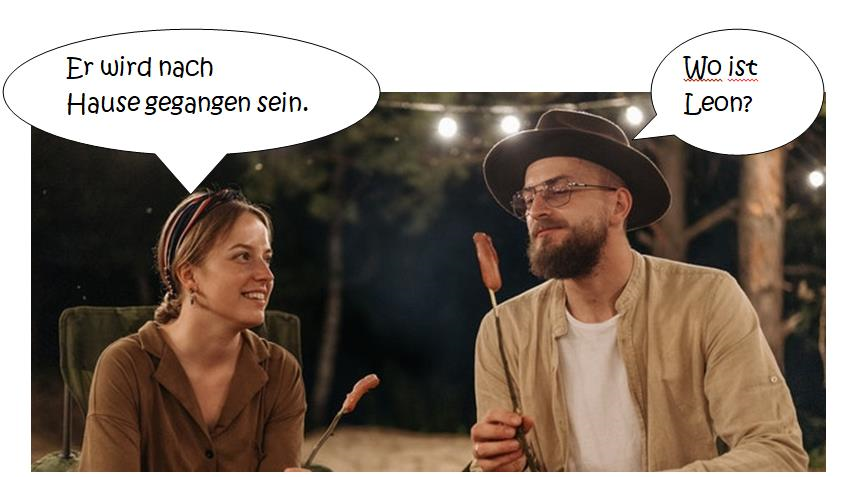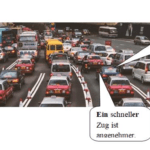In this lesson, you will learn all about the future II in German, and how it is formed. what it means and when it is used.
Thank you for reading this post, don't forget to subscribe!CONTENTS
What is Future II?
How is Future II formed?
Haben or sein. What verb to use?
What is the difference between future I and future II?
What is Future II?
Future II is used to express a hunch or assumption whether a past action has been performed or will be performed.
For example:
Dein Freund wird dir geschrieben haben. (A friend must have written to you.)
Er wird seine Arbeit bald beendet haben. (They will finish work soon.)
Future II can express an event that ends at a certain time in the future.
For example:
Bis morgen werde ich mir die Sache überlegt haben. Bald werden wir es geschafft haben. (I’ll have thought it over by tomorrow. Soon we’ll have done it.)
However, the Futur II is rarely used; it is mostly replaced by the perfect with an adverb of time, which indicates the future.
For example:
Bis morgen habe ich mir die Sache überlegt. Bald haben wir es geschafft. (I’ll think about it until tomorrow. We’ll sort that out soon.)
Germans use Future II most often to express an assumption or possibility:
For example:
Er ist nach Rom gefahren. Er wird jetzt dort schon angekommen sein. (He traveled to Rome. He must have already arrived there.)
Er wird zu Hause gewesen sein. (He must have been at home.)
Click on:
Grammar Contents
How is the Future II formed?
Future II is a combination of FUTURE and PERFECT TENSE, that’s why it is built from the verb werden + Participle II + auxiliary verbs haben or sein.
| WERDEN | PARTICIPLE II + SEIN/HABEN | |
| ich | werde | geschrieben haben gesehen haben angekommen sein |
| du | wirst | |
| er,sie,es | wird | |
| wir | warden | |
| ihr | werdet | |
| sie/Sie | werden |
To form Future II we need THREE elements:
- Auxiliary verb werden
- Perfect participle of the main verb
- The infinitive of the verb haben or sein

Sie wird bis Montag ihre Aufgabe wohl erledigt haben.
Mein Sohn wird sicher bis 10 Uhr angekommen sein.
Wird, as you can see in the sentence, necessarily comes in the SECOND PLACE, and erledigt haben or angekommen sein come at the END OF THE SENTENCE.
Haben or sein. What verb to use?
The same rules apply here as for the perfect, which is why the auxiliary verb haben goes with the verb erledigen, because it requires an object in the accusative case.
The verb ankommen expresses movement, so we choose the auxiliary verb sein with it.
What is the difference between future I and future II?
Future I is used when you plan, assume and promise something for the future.
For example:
Ich werde Deutsch studieren. (It is not certain whether this plan can be realized)
Future II – is used when you determine, plan, or assume that something will be completed at a certain time in the future (or that something probably happened in the past).
For example:
Ich werde bis zum Ende des Monates meine Prüfungen bestanden haben. (Here is the exact time in the future until which the action will last)
See more:
Bis zum nächsten Mal!
If you have any questions, leave a comment below. I will be happy to answer any of your questions!



